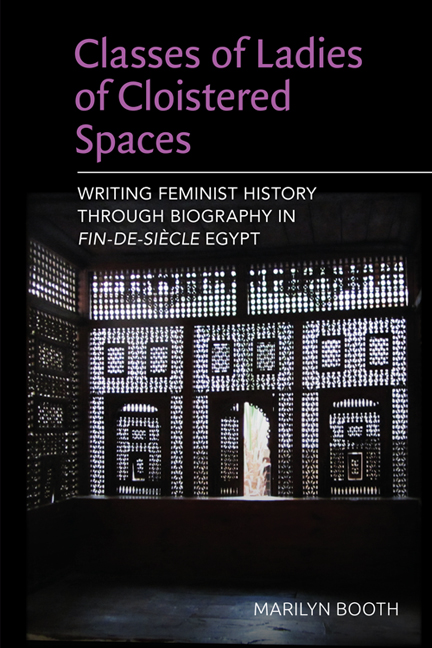Book contents
- Frontmatter
- Contents
- Acknowledgements
- Dedication
- I Pearls Scattered: An Introduction
- II A Women's World History, in the World of Arabic Letters: A Reader's View
- III Founding Mothers, Speaking Sisters: Lineaments of Community in History
- IV Writerly Pursuits: A Compiler's Archive
- V A Beckoning Compass, Circulating Lives: The Bustani Encyclopedia and Other Nineteenth-century Sources
- VI Interlocutors? Men Authoring Women's History in the 1890s
- VII Framing a History of the Present: or, Did the Pearls Scatter to the World's Fair?
- VIII Violent Romances: The Bodily Drama of Patriarchal Trauma
- Conclusion: A World of Women, Feminist History and the Importance of the Feminine Signature
- Appendix I: Translations
- Appendix II: List of Fawwaz's Pearls
- Notes
- Bibliography
- Index
Conclusion: A World of Women, Feminist History and the Importance of the Feminine Signature
Published online by Cambridge University Press: 05 August 2016
- Frontmatter
- Contents
- Acknowledgements
- Dedication
- I Pearls Scattered: An Introduction
- II A Women's World History, in the World of Arabic Letters: A Reader's View
- III Founding Mothers, Speaking Sisters: Lineaments of Community in History
- IV Writerly Pursuits: A Compiler's Archive
- V A Beckoning Compass, Circulating Lives: The Bustani Encyclopedia and Other Nineteenth-century Sources
- VI Interlocutors? Men Authoring Women's History in the 1890s
- VII Framing a History of the Present: or, Did the Pearls Scatter to the World's Fair?
- VIII Violent Romances: The Bodily Drama of Patriarchal Trauma
- Conclusion: A World of Women, Feminist History and the Importance of the Feminine Signature
- Appendix I: Translations
- Appendix II: List of Fawwaz's Pearls
- Notes
- Bibliography
- Index
Summary
In 2011, Oxford University Press, Karachi, published a volume to disseminate material from an educational project developed by Women Living Under Muslim Laws (WLUML), an international informational and support network founded in 1984 to support ‘women's individual and collective struggles for equality and their rights’. Great Ancestors: Women Claiming Rights in Muslim Contexts began, explained the book's editor Farida Shaheed, as a leadership training module for women living in Muslim communities. The aims were twofold: to squash ‘the a-historical and misconceived notion that contemporary women's movements … all spring from the struggles and thinking of European and North American women in the nineteenth and twentieth centuries’ or that women's rights struggles were ‘confined, historically and geographically, to … [these] locations’, and to offer historical examples of Muslim women ‘who defied culturally defined gender norms to assert their right to be different and to change their society’. These biographies – meant for collective discussion – were ‘small counterweights to rising essentialist identity politics’. The women who put together this collection saw researching and writing biography as a practice of resistance to hegemonic discourses that were seeking to narrow women's options and aspirations. They identified three ‘strands of assertiveness’ that guided their selection process: struggles on behalf of personal life choices; work in solidarity with other women; and work towards society-wide improvement. That a few narratives in the volume implicitly assume ‘choice’ and ‘freedom’ where these might not have been the operative concepts (early and medieval Muslim women's multiple marriages and divorces) underscores the point of the book. ‘Great-woman’ biography retains an activist potential for some feminists in the twenty-first century. Of twenty-one Great Ancestors, eighth to eighteenth centuries ce, whose life histories are featured, eleven appear in Pearls Scattered.
To judge by Fawwaz's preface and the announcements, encomia and correspondence framing her project, a similar excavatory-exemplary ambition motivated her project.
- Type
- Chapter
- Information
- Classes of LadiesWriting Feminist History through Biography in Fin-de-siecle Egypt, pp. 315 - 330Publisher: Edinburgh University PressPrint publication year: 2015



